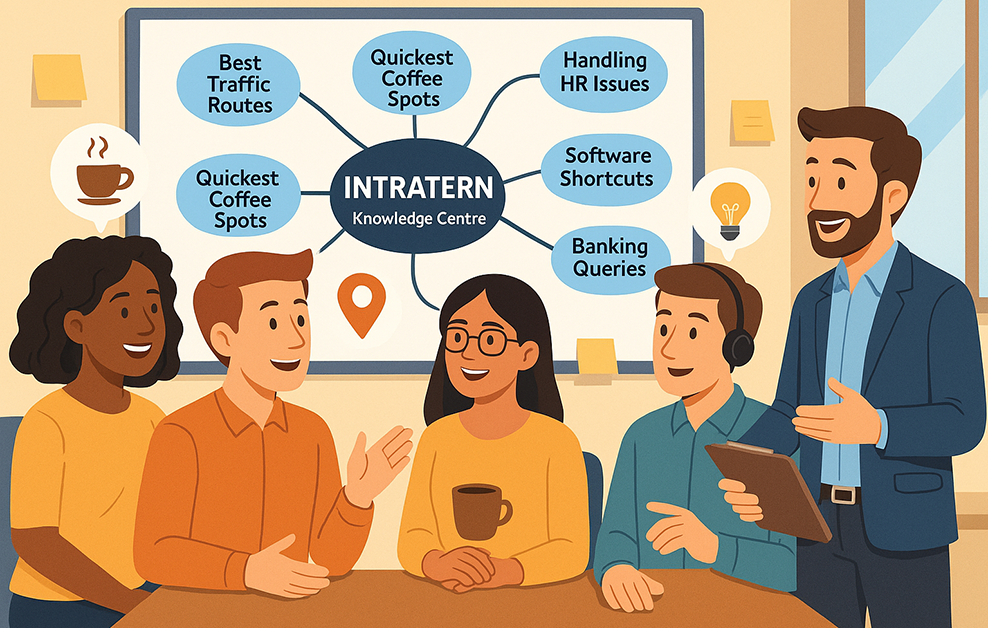Everyone is an expert at something in the workplace. It may be as small as knowing the best ways to get to work through the traffic, or where the coffee is cheapest and served the quickest.
These might be silly examples, but they could make a difference to the team’s cohesion. Getting into work after dealing with traffic can put most people in a terrible mood, waiting for an expensive coffee for an extended time, after negotiating a traffic jam will probably add to the stress because that person may also be late for work.
Once this is seen in context, you’ll start to understand how each person can contribute to the knowledge treasure trove that is the inherent value of your team. As a manager you know that a content team is more productive. A team that is equipped with the necessary skills is even more productive.
Which brings us on to the rest of the people in your formalised knowledge centre. For simplicity’s sake, I’ll use the term INTRATERNs.
Learning soft skills is vital, but they can’t be learned in isolation. Once someone has explained how to navigate the traffic and get coffee before work starts, they’ve pretty much done their job. There are other people who have mastered an aspect of their task that may have something to teach the rest of the INTRATERNs. This could be software application, a method of handling banking queries, dealing with the difficult person in HR or an expert on accounting practices.
All of this information is very important to you and your team. Once the team has settled down into the routine of these sessions, you might want to bring in someone from another department to talk to the team.
At the moment your INTRATERN programme is still informal. Don’t worry, we’ll get to the point where your team becomes the blueprint for the division in the building next door.
Next week we’ll talk about a suggested process.
If you’d like to know more about how we assist companies become massive knowledge centres please contact us, the consultation is at no charge.

